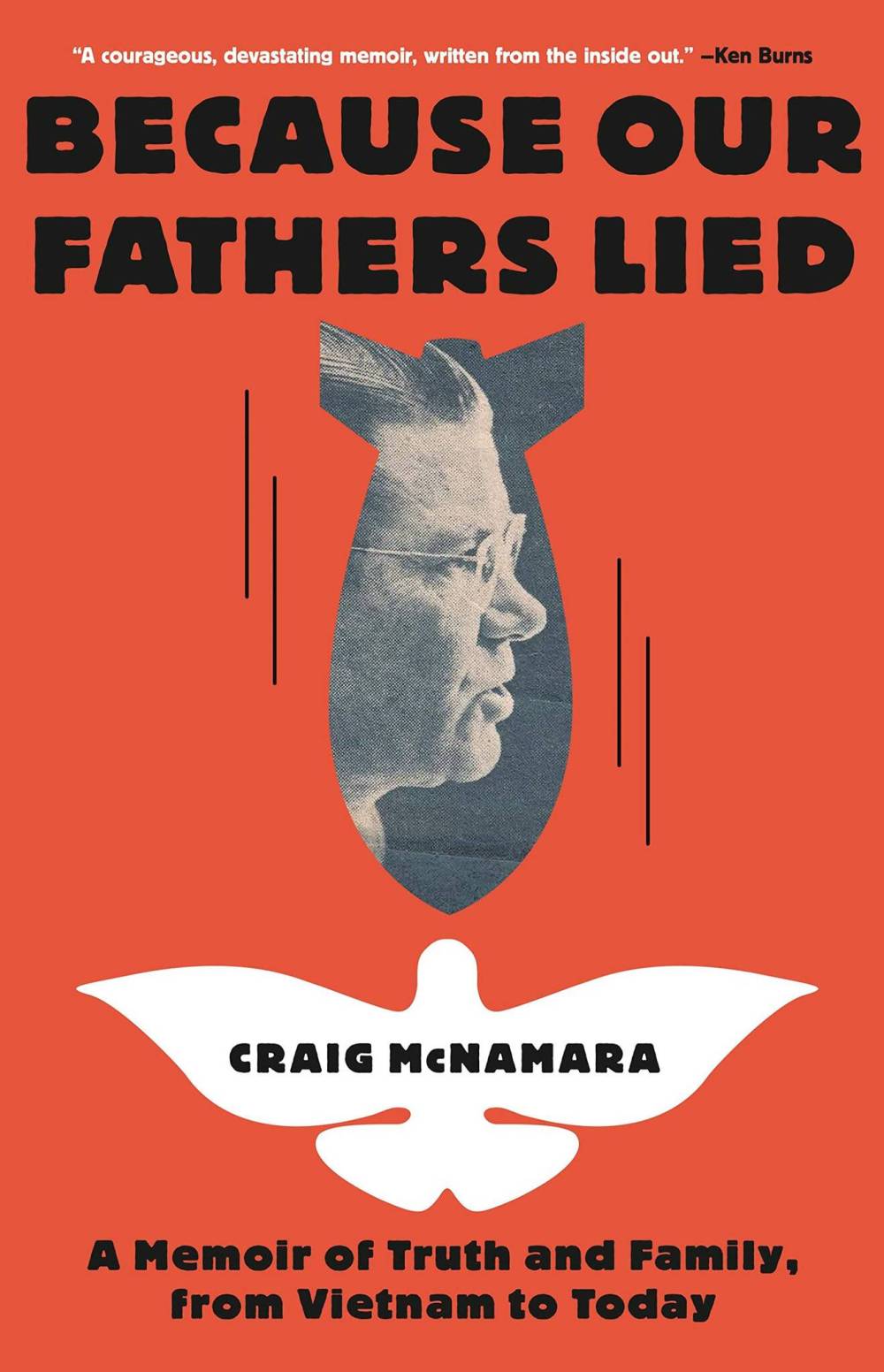Vietnam War architect’sson mulls father’s legacy
Advertisement
Read this article for free:
or
Already have an account? Log in here »
To continue reading, please subscribe:
Monthly Digital Subscription
$0 for the first 4 weeks*
- Enjoy unlimited reading on winnipegfreepress.com
- Read the E-Edition, our digital replica newspaper
- Access News Break, our award-winning app
- Play interactive puzzles
*No charge for 4 weeks then price increases to the regular rate of $19.95 plus GST every four weeks. Offer available to new and qualified returning subscribers only. Cancel any time.
Monthly Digital Subscription
$4.99/week*
- Enjoy unlimited reading on winnipegfreepress.com
- Read the E-Edition, our digital replica newspaper
- Access News Break, our award-winning app
- Play interactive puzzles
*Billed as $19.95 plus GST every four weeks. Cancel any time.
To continue reading, please subscribe:
Add Free Press access to your Brandon Sun subscription for only an additional
$1 for the first 4 weeks*
*Your next subscription payment will increase by $1.00 and you will be charged $16.99 plus GST for four weeks. After four weeks, your payment will increase to $23.99 plus GST every four weeks.
Read unlimited articles for free today:
or
Already have an account? Log in here »
Hey there, time traveller!
This article was published 02/07/2022 (1287 days ago), so information in it may no longer be current.
The opening lines of this memoir are a brutal indictment of the author Craig McNamara’s father, both as a parent and a political leader.
“Just tell me the truth. Seems simple enough. Yet for all my life, I struggled to arrive at the truth with my father.
“He never told me the Vietnam War wasn’t winnable. But he did know, and never admitted it to me. More than a decade after his death, I still wonder why he was no more honest with me than he was with the American public.”

The author’s father was Robert McNamara, former U.S. secretary of defense (1961-68) who served under American presidents John F. Kennedy and Lyndon Johnson, and was the chief architect of the war in South Vietnam.
The U.S. pulled out of Vietnam in 1973. in 1975, Communist North Vietnam defeated the South Vietnamese government and captured its capitol, Saigon (now Ho Chi Minh City).
In the 1990s Robert McNamara admitted that, as early as 1965, he didn’t believe the war was winnable by South Vietnam, even with massive American military involvement. Yet for years thereafter he played a pivotal role in America’s ever escalating military commitments. So much so that it was often dubbed “McNamara’s War.”
Craig McNamara’s memoir follows a nicely rendered traditional narrative — childhood and adolescence through to adulthood, and thereafter to his father’s post-politics career until his death in 2009. But its focus and underpinning is untraditional; it largely revolves around the Vietnam War.
“Craigie,” as his father called him, opposed the war his father led, even as he was leading it. He participated in anti-war demonstrations, traveled Central and South America on a motorcycle to escape the war’s omnipresence in his life, chanted support for Fidel Castro at a rally in Santiago, Chile and befriended Chileans, who subsequently disappeared after Augusto Pinochet led a military coup that overthrew the government of Salvador Allende.
Today, he’s by occupation a California walnut farmer, but his politics still have a leftward tilt.
The book’s title refers to “fathers,” plural. It initially seems an odd choice for a memoir by Robert McNamara’s only son.
But the title becomes more understandable late in the book when McNamara writes about his friendship with Rich Rusk, son of Dean Rusk. Dean Rusk was secretary of state during the Kennedy and Johnson administrations, Robert McNamara’s colleague and also a proponent of the Vietnam War.
Rich Rusk, like Craig McNamara, had become estranged from his father due to his opposition to the war. Rusk was one of the principals of a tour group, composed mainly of Vietnam War vets, scheduled to visit Vietnam “on a mission of peace” in 2018. He’d consulted Craig McNamara about the trip, in light of their historical “common bond in opposing the war.”
Rusk never made that “dedicated to healing wounds” trip to Vietnam. “On January 28, 2018,” writes McNamara, “just weeks before he was scheduled to travel to Vietnam, Rich committed suicide by jumping off a bridge.”
The Vietnam War constituted both a political and personal gulf between father and son — a gulf never bridged.
The result is memoir as paradox: a loving portrait of a father who engineered a dysfunctional relationship with his son that at times bordered on emotional abuse.
Yet, Craig McNamara loved his dad. And that shines through in these pages.
Douglas J. Johnston is a Winnipeg lawyer and writer.


